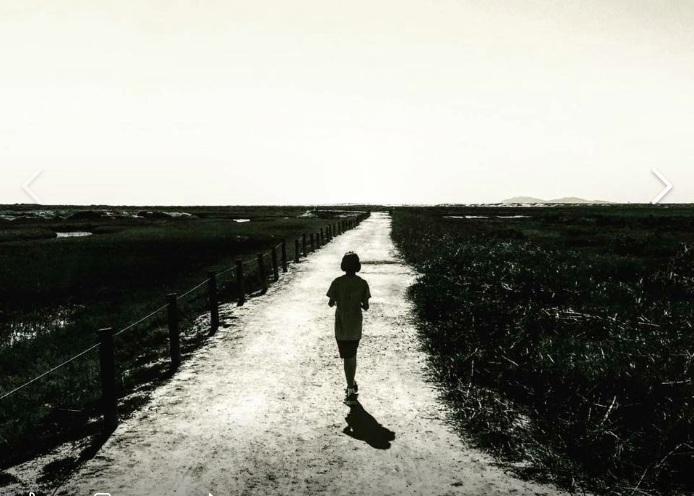Our memories are mostly memories of memories. We can trust the big ideas. The details are more suspect.
We pave over the particulars of our past with things from other events or things other people have told us about their experiences of the same event. It’s one of the reasons, besides the fact that people are fantastical liars, that we get caught telling tales so often.
Our past exists in a Gordian Knot of stored data in a biological wet organ just big enough to grow inside our skull. And so over time, all that’s left is the general idea of something that once happened to us. And even then only if we all agree on what that idea was and write it down. So that’s what I’m about to do, lest I forget this one and it vanishes like Roy Batty’s teardrops in rain.
Trust the big idea of this one. The details are post script constructs.
Ten years ago this week, I sat staring at a clip board at my desk in my troop space. On it was a long list of things that needed to get done.
Weapons inventories. Manifest check sheet. Will. Power of Attorney. Classified hard drive storage.
There was a line through each of them already.
The phone in the middle of the desk I shared with my Troop Master Chief rang. He picked it up, muttered a something inaudible and hung up. Then he looked at me. Of all the things I remember that day, it was the look.
We were due over at the North Island Naval Air station with the rest of my troop to get onto a C17 headed for Balad, Iraq in about an hour. But something had happened and we had to head over to the meeting room in SEAL Team ONE. And that something could really only be one thing.
Dan Cnossen, one of the Team’s platoon commanders, was injured in Afghanistan. He was a part of the team that had left the week before with some of my operators and analysts. I knew Dan a bit. Not that well. He lost both legs but survived.
We were about to say goodbye to our families on the tarmac, but the Skipper wanted us to know what happened to Dan. And to remind us that no one says nothing to no one. There was a process underway to let those who need to know, know.
This was the work.
As for Dan, he’s since gone to grad school at Harvard and won two Para-Olympic Gold Medals in the Bi-athlon. It’s true what Ruth said about people you know. If they never quit, they’re damn hard to beat. And there’s clearly no quit in Dan.
I left my wife and three kids on the Tarmac that day. It was the last time I would see my middle son before he was diagnosed with Autism. It was the last time I would see my youngest before he could walk. I slept on top of a conex box in a sleeping bag for the next 15 hours or so before we landed in Iraq.
I felt as bad as I’ve ever felt in my life. For a few minutes and then I buried it.
Those are the details of the day.
The big idea was that it was the end. Whatever I had built myself to be able to do, was done. All that was left was six months to play the game I’d spent the previous 15 years preparing for. And while many, maybe even most of my generation will tell you that the most important time in their lives was when they served, I won’t.
Because the most important time in my life was the ten years since I stopped.
None of us, no matter who we are, can fight forever. And few of us can find a market that fills up our lives talking about what it took to fight. The rest of us need to move on.
I put my family back together. I put myself back together. I found that kid that raised his right hand on the courtyard in Annapolis 20 years earlier who saw that world through bright eyes. Who hadn’t yet buried a lifetime of pain in the desert. Who hadn’t yet clung to countless unsustainable life hacks to numb the pain.
I founded a non-profit with my wife to help families with special needs.
I found a career in an industry that let me build on the experience I had but insisted I grow beyond it.
I found my voice in writing; a few million visits to this site, articles in the Washington Post, Playboy and a dozen other online venues.
I found faith. And in it, I found the strength to walk the next leg of the journey; the journey of a special needs father.
This blog is winding down. I’ve said most of what I need to say about politics in America. It’s not going anywhere. If I need to, I’ll say something here from time to time. But there’s work to be done. There are men out there on the same journey I’m on, in pain. Men who don’t know how to be who they are through the grinding task of special needs parenting.
It’s an unfair task. But I think I can help.
This September I’m launching a blog to provide some words of encouragement, hard lessons learned and a little salt and light to the fathers of special needs children. I know they won’t ask for help. I know they won’t tell people they’re hurting. I don’t need them to. I’ve been there.
And I’m coming to them.
Thank you all so much for the years of following this blog. You are all the reason I wrote. I hope it helped.
And if you’d like to follow my new page, I’ll send one last post with the info when we get it out.




